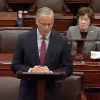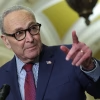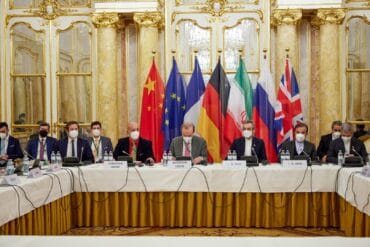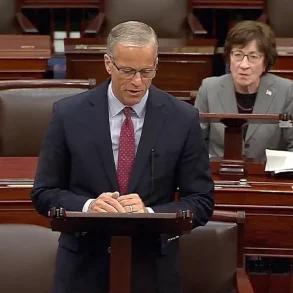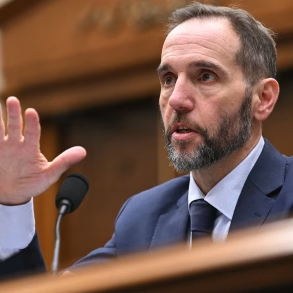Iran stands at a critical juncture. Its economy, battered by years of stringent sanctions, is pushing the nation toward a nuclear deal with the United States and other global powers. The promise of sanctions relief offers a lifeline to a regime grappling with domestic discontent and regional ambitions, making a nuclear agreement not just a diplomatic necessity but an economic imperative.
A Struggling Economy Under Pressure
Iran’s economy has been severely strained by the U.S.-led “maximum pressure” campaign, reintensified under the Trump administration. Sanctions have slashed oil exports, crippled banking systems, and driven inflation to punishing levels—reportedly exceeding 30% annually in recent years. The rial has plummeted, losing over 70% of its value since 2018, eroding purchasing power and fueling public unrest. Unemployment hovers around 10%, with youth joblessness nearly double that, stoking frustration among a population weary of hardship.
The threat of military intervention, coupled with economic isolation, has compelled Iran to reengage in diplomacy. Recent high-level talks in Oman signal Tehran’s willingness to negotiate, driven by the urgent need to stabilize its economy. A nuclear deal, with the prospect of lifting sanctions, could unlock oil revenues, restore trade, and ease the financial chokehold—a tantalizing prospect for a government seeking to shore up legitimacy at home.
The Regional Context: Stability vs. Ambition
While Iran’s economic woes demand relief, its regional policies complicate the path to a deal. Tehran maintains a delicate balance, wielding influence through proxies in Iraq, Lebanon, Syria, and Yemen. These commitments, deeply tied to Iran’s identity and security strategy, are unlikely to shift dramatically post-deal. As Kenneth Pollack noted in his 2015 testimony, Iran’s leadership views its regional footholds—particularly in Iraq and Lebanon—as more vital than any nuclear agreement. Supreme Leader Ayatollah Ali Khamenei has historically prioritized these alliances, pouring resources into them even amid economic strain.
Yet, a nuclear deal could alter the regional calculus indirectly. Sanctions relief would bolster Iran’s fiscal capacity, potentially enabling it to sustain or even expand its influence. Conversely, failure to secure a deal risks further economic collapse, which could force Iran to scale back its regional activities—a scenario Khamenei is keen to avoid. The status quo, where Iran’s allies hold sway in multiple capitals, is comfortable for Tehran, but maintaining it requires economic stability that only a deal can provide.
The Domestic Debate: Reform or Defiance?
Inside Iran, a nuclear deal sparks fierce debate. Moderates, led by figures like President Hassan Rouhani, see it as a gateway to global reintegration, economic recovery, and perhaps even cautious rapprochement with the West. Hardliners, however, view concessions as a betrayal of revolutionary ideals, advocating instead for doubling down on regional dominance to counter U.S. influence. Khamenei, the ultimate arbiter, appears to approach the deal transactionally—primarily as a means to lift sanctions without surrendering Iran’s nuclear capabilities entirely.
This internal tug-of-war shapes Iran’s negotiating stance. A deal that eases economic pressure could empower reformers, but Khamenei’s wariness of broader Western engagement suggests limits to any thaw. As Pollack observed, Iran’s opaque political system often results in compromise or indecision, meaning a deal may not herald a strategic pivot but rather a pragmatic pause to rebuild economic strength.
The Stakes for Iran and Beyond
For Iran, the stakes are existential. A nuclear deal offers a chance to revive an economy on the brink, quell domestic unrest, and preserve regional clout. Without it, prolonged sanctions could deepen economic despair, risking instability that even Iran’s authoritarian grip might struggle to contain. The recent talks in Oman, the highest-level U.S.-Iran dialogue in years, underscore Tehran’s recognition of this reality.
Globally, the implications are profound. A deal could stabilize oil markets, with Iran potentially reintroducing 1-2 million barrels daily, easing prices strained by geopolitical tensions. It might also reduce the risk of nuclear proliferation in a volatile region, though fears persist about Iran’s long-term intentions. For the U.S., securing a deal aligns with efforts to curb Iran’s nuclear ambitions without resorting to military action, though it demands careful calibration to avoid emboldening Tehran’s regional agenda.
An Economic Lifeline Iran Can’t Ignore
Iran’s pursuit of a nuclear deal is less about ideology and more about survival. Its economy, battered by sanctions and mismanagement, cannot sustain the status quo indefinitely. While regional ambitions and domestic politics complicate the path forward, the promise of sanctions relief is a powerful incentive—one that even hardliners cannot fully dismiss. As negotiations continue, Iran’s leaders know that economic recovery hinges on compromise, making a nuclear deal not just desirable but essential.
